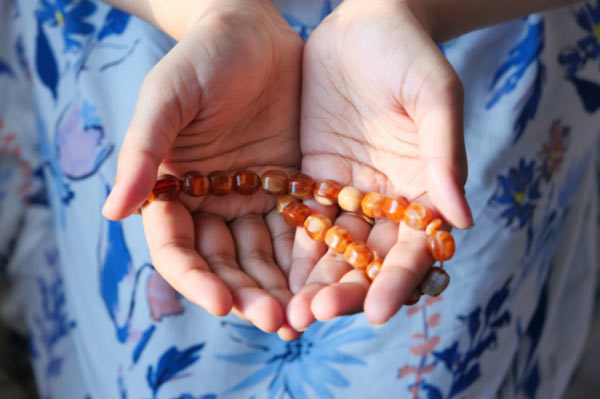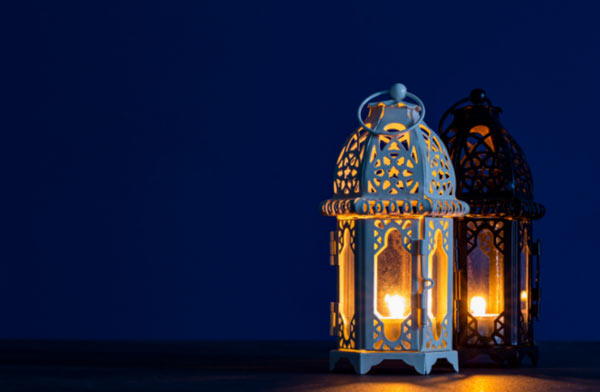Eid al-Adha, otherwise called Bakra Eid, is a critical Islamic celebration celebrated by a vast number of Muslims around the world. Let's delve into the festivities, history, and significance that make Eid al-Adha a cherished and meaningful event in 2024 as families and communities gather to commemorate this auspicious occasion.
Eid al-Adha Celebrations
Eid al-Adha, frequently named the "Celebration of Penance," holds significant importance as it remembers Prophet Ibrahim's steadfast readiness to forfeit his child dutifully to God. Nevertheless, before he could satisfy this demonstration, God interceded and gave a smash to forfeit, representing heavenly kindness. Muslims around the world perform the Qurbani ceremony, which involves the sacrifice of animals like camels, goats, sheep, or cows in honor of this intervention. This emblematic demonstration of commitment and surrender builds the otherworldly association between adherents and God. The principles of submission, gratitude, and acknowledgment of divine providence are emphasized in the ritual, which has a significance that extends beyond the actual act. Eid al-Adha, subsequently, turns into a festival that praises verifiable occasions and cultivates a profound otherworldly association among Muslim groups worldwide.

Qurbani: Images of Penance and Charity
The act of Qurbani reaches out beyond a simple custom; it fills in as a symbolic articulation of responsibility and commitment inside the Muslim people group. Families meet up to play out the penance, and the dispersion of the meat gives an insightful example: 33% is designated to people in need, more than one-third to loved ones, and the leftover part is held for the family. This custom highlights the significant upsides of noble causes, liberality, and imparting to those less fortunate. By sticking to this training, Muslims reaffirm their obligation to social obligation and underline the significance of aggregate government assistance. Consequently, Qurbani turns into an intense course for encouraging compassion, supporting mutual bonds, and epitomizing the soul of kindheartedness in the festival of Eid al-Adha.
Eid Petitions and Sermons
The day begins with an extraordinary Eid request, acting in social affairs at mosques or allocating appeals to paradise grounds. The lesson taught during the request frequently discusses the significance of piety, compassion, and devotion to God. Muslims offer thanks for their favors and request mercy for any weaknesses.
Banquets and Festivities Eid al-Adha is a period for happy festivals and blowouts. Families get together to share delicious suppers, exchange gifts, and participate in the association of loved ones. Extraordinary dishes, as often as possible prepared with mollifying meat, are delighted during these get-togethers. It is a time of shared holding, invigorating familial ties, and developing a sensation of grit inside the Muslim social class.

History
The early phases of Eid al-Adha can be followed back to the tale of Prophet Ibrahim, a focal figure in Islam, Christianity, and Judaism. According to Islamic custom, Ibrahim got an eminent request in a dream to relinquish his kid, Isma'il (Ishmael). Ibrahim educated his child about the story in preparation for submitting to God's will, and the two agreed to comply with God's directive. God mediated and gave a slam as a substitute as Ibrahim arranged to play out the penance, saving Ibrahim's life. This event addresses the acquiescence, certainty, and responsibility essential to the Eid Al-Adha celebration.
Significance of Eid al-Adha
"Eid al-Adha: Otherworldly Reflection and Accommodation to God" During Eid al-Adha, Muslims examine the excellencies of giving up to God's will and committing their lives to Him. The story of Prophet Ibrahim is a powerful indication of the significance of respecting heavenly direction and establishing steadfast confidence in God's kindness. Muslims are encouraged to reflect on the essence of submission and acknowledge the divine wisdom that guides their lives as they observe the Festival of Sacrifice. This profound reflection becomes a pathway to reinforce their association with God, cultivating a deep feeling of modesty, appreciation, and dependence on divine direction despite life's difficulties. As a result, Eid al-Adha transforms into a time of deep spiritual reflection, unwavering submission to God's will, and a celebration of historical events.
Sympathy and Charity
The demonstration of Qurbani and the appropriation of meat among the less lucky highlight the standards of sympathy and reasonable cause. Muslims are encouraged to assist those in need, which fosters a sense of empathy and community solidarity. Family and local area bonding Eid al-Adha stresses the meaning of family and local area holding. The festive gatherings, prayers, and shared meals create an atmosphere of warmth and community. It is a chance to fortify connections internationally and construct solidarity among Muslims.
Cultural Traditions and Customs
Eid al-Adha may be associated with distinctive cultural practices in various communities and regions. From conventional attire to nearby ceremonies, these traditions add tone and variety to the festival, displaying the abundance of Islamic culture.
The festival of Eid al-Adha, also known as Bakra Eid, encapsulates the essence of devotion, compassion, and sacrifice. As Muslims overall meet up to see this festival, the customs of Qurbani, shared supplications, and happy social occasions create a climate of delight and profound satisfaction.
Eid al-Adha fills in past ceremonies as a period for thoughtfulness, reflection, and thoughtful gestures. A festival rises above borders, bringing Muslims from different foundations together in the soul of solidarity and shared values.
As families trade good tidings, participate in feasts, and take part in demonstrations of noble causes, the genuine quintessence of Eid al-Adha radiates through—a festival that praises the past as well as shapes a caring and interconnected future for the worldwide Muslim people group.
Conclusion:
In conclusion, Eid al-Adha, or Bakra Eid, encapsulates the enduring values of sacrifice, compassion, and unity within the Muslim community. As families gather for prayers, Qurbani rituals, and shared feasts, the festival becomes a vibrant tapestry of devotion and gratitude. Beyond its historical roots, Eid al-Adha serves as a living tradition, shaping the character of the Muslim world through spiritual reflection and acts of kindness. The festival's essence lies in strengthening familial bonds, fostering community unity, and extending generosity to the less fortunate. As Muslims globally celebrate, Eid al-Adha becomes a beacon of shared values, transcending cultural boundaries and guiding communities toward a compassionate and interconnected future. Eid Mubarak!

Chopta Tungnath Trek, Uttarakhand: A Spiritual Journey

Norwegian Coastal Charm: A Traveler's Guide to Seaside Towns

Bangalore Shopping Havens: Top Spots

What Should Be in Your Backpack: Essentials for the Camino De Santiago

Best Resorts of Saputara for a perfect getaway

Romantic Cabana Candlelight Dining in Jaipur

Capturing Memories: The Best Cameras for Travel in 2024

Best Places To Visit Around The World You Should Not Miss To Visit

Syntagma Square, Athens: Places to visit, How to Reach, and Best Time

Mahathobara Shri Mangaladevi Temple

Weekend Getaway At ALuxurious Vineyard 2023
